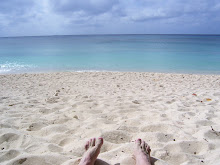
Yesterday I finished the collection of articles in "Bite the Hand that Feeds You" a collection of articles by political and cultural critic Henry Fairlie. The man who turned "the Establishment" into a pop culture phrase. Having never heard of Fairlie before this summer I was really eager to read his works and promptly checked the book once it arrived at the GMU library.
I really enjoyed the introduction which depicted the gypsy life of Mr. Fairlie discussing his success and failures. He had many of both. His articles are divided up into three sections which include some of his early work while still in England, essays and articles after he immigrated to the US, and finally his critiques of the press and media.
The first section, except for his essay discussing the development of the term "the Establishent," is dull as I have no knowledge or interest in 1950s/1960s British politics. While this section displays his talents, I was happy to move onto the section after he moved to America.
It is always exciting to read how foreigners see and depict the United States. It makes one feel proud of there country that we can inspire so people and the world, and Fairlie's writing very much do that. While Fairlie declares the existence of and praises the American Empire, I found myself agreeing that during the height of the Cold War American imperialism monitored and kept at bay the Soviet threat. However, today I would question the value of American imperialism or as hegemony as those who deny the existence of the empire. However, the majority of Fairlie's articles on America are either fun and poke fun at the American lifestyle or show American's how great and unique our country is. Yet, the articles included from the 1980s towards the end of Fairlie's life tend to be full of cynicism and overtly critical of the Reagan Administration and the culture.
The final section which critiques the press and the media is my favorite section. Fairlie's sharp intellect clearly shows that even in the 1980s he knew that the news media would end up the why it is today: a bunch of screaming children who want it their way. The pundits lack of intelligent debate is frighting today. He also critical of the opinion writers in today's newspapers who are inclined to write to make a name for themselves. Which will eventually get them on TV so they can turn into a childish pundit instead of learning political theory to understand what they are actually arguing over.
Overall, this collection of Fairlie's articles displays his intellect and his opinions over forty years of work, and while some section failed to peak my interest I found he writings to be very interesting and pertinent even today.



